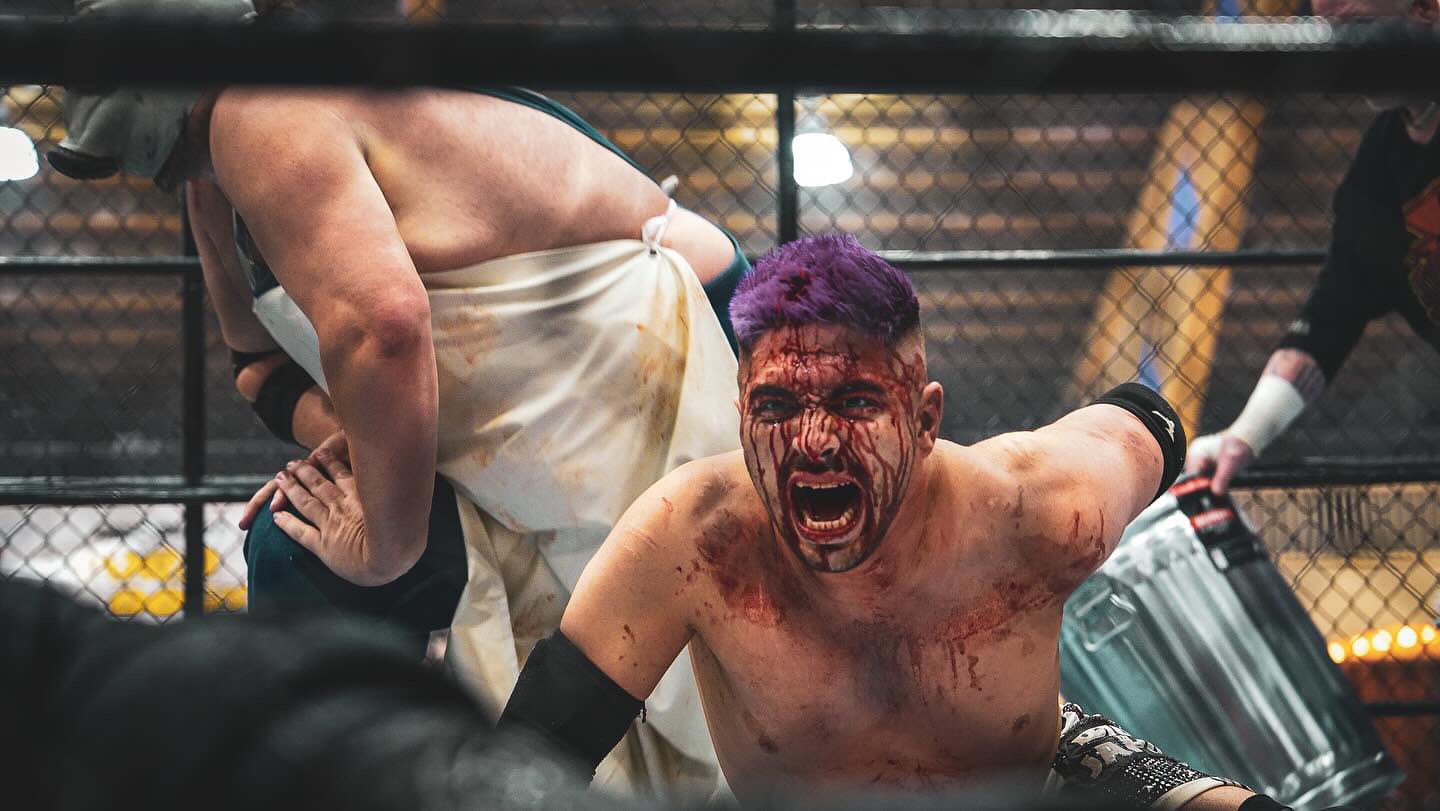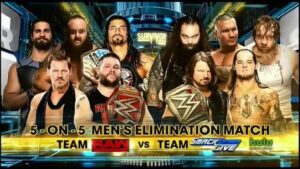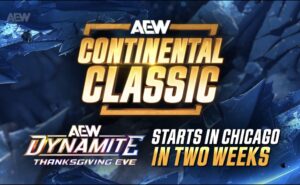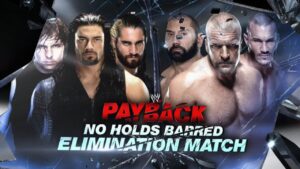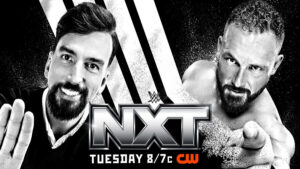Indie Watch is our regular series that looks at amazing talents working the independent circuits around the world. Some are veterans revitalizing their careers. Some are indie prospects hitting their peaks. Others are names to be on the watch for! This edition looks at an individual who’s known by many monikers, such as the “Death Fighter” and the “Ultra Violent Samurai,” but many of his fans know him as simply Akira.
“If you can’t listen to these fans and hear that I’m money waiting to be printed, then you are f*cking yourself. PERIOD!”
In six short years, Akira has firmly solidified himself as one of the standards in independent and deathmatch wrestling. From Japan to Philly, the crowds are chanting his name.
“Akira, Akira, Akira.”
Akira recently sat down with Will Gray from Last Word on Sports, to discuss his career, his rise, and deathmatch wrestling.
Forging the Akira Way
Growing up in rural Indiana is not easy. It was especially uneasy for a Japanese/Korean kid with a bowl cut. Akira was born and raised in the Midwest and felt the struggles of many minority children.
“I’m from the middle of Indiana, the middle of nowhere… I was the only minority, and when I was growing up I was the prototypical Asian kid.”
A multi-sport athlete, Akira was also a collegiate swimmer. Outside of sports, he is a musician and an artist. Growing up, Akira would watch WWE, WCW and ECW, but by high school would find through tape trading with friends, NJPW and Pro Wrestling NOAH from Japan.
Once he finished college, Akira found himself in the drudge of endless jobs rotating without any passion behind them. Shortly after college, he attended a house show, featuring WWE superstars AJ Styles and Dean Ambrose. The hard-hitting action led to Akira seeking out a school, and starting his journey.
During the interview, Akira would discuss the rigorous schedule during training. He would go on to talk about the three-hour car rides to the school, sleeping on couches to save money and working full time. All to achieve his goal.
By 2018, Akira was ready to hit the road and start working.
“My entire career has been proving people wrong. I did my pilgrimage on my own.”
Working Minoru Suzuki
Fight to Survive
— AKIRA アキラ DEATH FIGHTER (@theakiraway) April 16, 2024
Throughout the interview, Akira would imply how important Minoru Suzuki was and is to his career in wrestling. Having just arrived home from a show, Akira had the opportunity to wrestle the “Murder Grandpa” at Prestige Wrestling. Fresh off the plane, with the battle scars to prove it, Akira was elated about the match.
“It was surreal, you’ll see it on my face.”
Some people say, never meet your heroes. In Akira’s case, he got to roll around with one of his. He would say even with “all of his accolades,” he still went all in with him. Wrestling is all about charisma and action. During the action, Akira said Suzuki called him a “young boy” and instead of clamming up, he fired back “you old f*cking man.” It wasn’t out of disrespect, but more so out of love, because the crowd lost it.
“I got to roll around with one of the guys who got me back into wrestling.”
Akira would receive praise from everyone involved in the match.
Big Japan Pro-Wrestling
From Atsushi Onita to Terry Funk and Mick Foley, Japanese Deathmatch wrestling is its own world inside pro wrestling. The history of the fierce battles is renowned by fans and wrestlers alike. Over the last 18 months, Akira has had a run seen by a few gaijin.
“I don’t blow smoke up my own ass, but people were already chanting my name. I had the longest merch line. Being Japanese/Korean probably helped.”
Akira would say the Japanese fans were excited. He said they treated the presentation differently, and with that, they expect certain things. They aren’t the smart tongue-in-cheek fans in the States. They have a different appreciation for the art.
“I couldn’t go in there doing the ‘I’m a big dumb gaijin, punch kick, punch, kick.’ they wanted more from me.”
Travelling between the states with other stars from both sides of the ocean, Akira knew he was doing something right when veterans started saying things like “Now kid, you’ve made it.”
Deathmatches
The question is, what do fans get from deathmatch wrestling?
Akira’s answer would go back to before he was even wrestling. He said when he first started wrestling he didn’t like deathmatches. It wasn’t his cup of tea. But after seeing a pair of deathmatches between Nick Gage vs. Shlak and Carlon Colon vs. Jun Kasai, his opinions had changed. Akira had seen the “chaos and brutality of what it could be.”
The light tubes and ultra-violence of deathmatches aren’t for everyone. The crowd, the environment and everything are different.
“To be honest, it’s actually not for everyone. Deathmatch fans, get that visceral feeling of being in a mosh pit.”
GCW – The Collective: Bloodsport
We know who won in the long game.
Fight to Survive.
Follow the Way. #JBBSX https://t.co/WGAFfUojto pic.twitter.com/aZrXcULjsS
— AKIRA アキラ DEATH FIGHTER (@theakiraway) April 12, 2024
“That Road Warrior pop brother.”
Josh Barnett’s Bloodsport is a staple for The Collective and GCW. Ran by the “War Master” Barnett puts together his list of fighters for the event. This year featuring Shayna Baszler and Charlie Dempsey from the WWE it also featured some of the best fighters from around the world.
The Collective this year, featured alongside WrestleMania 40 in Philadelphia, had one of the biggest Bloodsport crowds to date. Akira faced off with the “Savage Gentleman” Victor Benjamin, and he would say “Hearing from a certain War Master, they were surprised by me.”
Akira would describe the event as being similar to his time in Japan. Discussing the “Inoki Slap” before going through the curtain to get the fighters ready.
The crowd was electric and although in defeat Akira said he received the “Road Warrior level pop.”
“I go out there and people remember me.”
Big Gay Brunch and MLW
Though the fires burnt the forest to cinder, the fires did end and new life begun to blossom.
Nature’s natural reset https://t.co/Ip2iDci5tW
— AKIRA アキラ DEATH FIGHTER (@theakiraway) April 16, 2024
“If Minoru Suzuki can do this sh*t, then there is no reason you macho motherf*ckers can’t do it.”
MaidKira is an alter-ego of Akira. Born from a Twitch goal and a bet with his viewers, MaidKira became a feature of his Twitch channel. Akira says that one day Effy came to a calling. The conversation sounded like, “Can MaidKira wrestle?” and he would answer “She can? What’s up?”
The concept of bridging character work and in-ring work is a key factor in establishing yourself in the wrestling world. Akira can do this seamlessly. He would say, “ I went out there to be the maid. I was cleaning the ropes… I dusted a fan’s face, and called him a dusty bitch… You put me in any scenario and I’m going to make it work.”
During the interview, Akira would also discuss his time with MLW.
“The run with MLW has been really cool.”
He would say he heard horror stories from friends, telling him don’t sign a contract. He said that since he arrived at MLW, he has been met with nothing but high praise and respect.
“I’m happy to be a part of a product that is growing… I get put in these positions and just keep killing it.”
Akira would also discuss the War Chamber match with Team Death Fighters. He would describe it as being chaotic but told a story that turned out well. He would talk about the year and a half build to the War Chamber match.
Akira has set himself apart everywhere he wrestles, and has a adorable dog named Kota. The full interview is available here. If aggregated please credit Will Gray and Last Word on Sports.
More From LWOS Pro Wrestling
Header photo – X (@theakiraway) – Stay tuned to the Last Word on Pro Wrestling for more on this and other stories from around the world of wrestling, as they develop. You can always count on LWOPW to be on top of the major news in the wrestling world.


